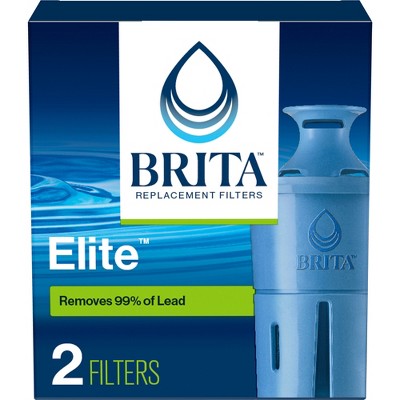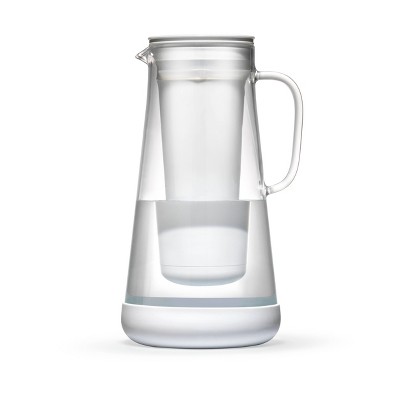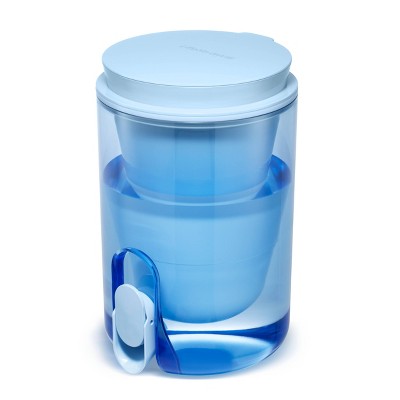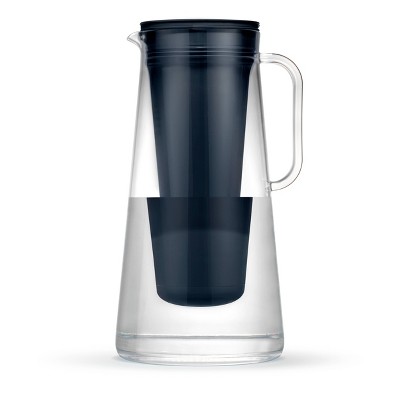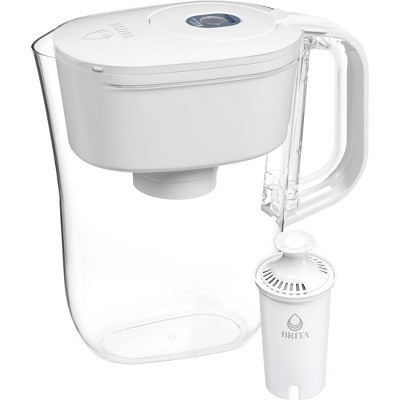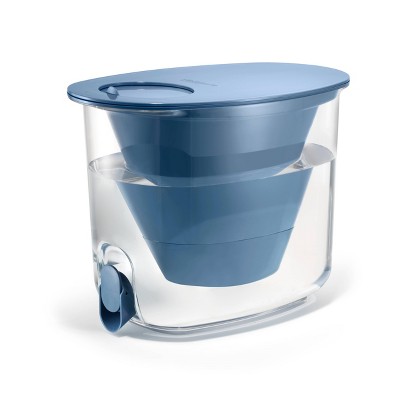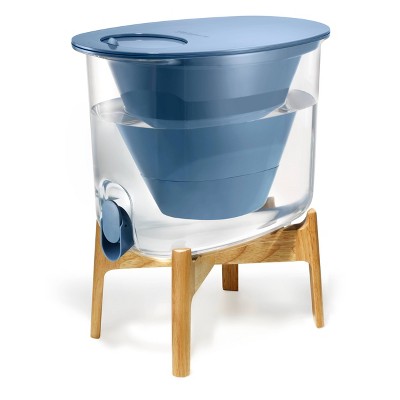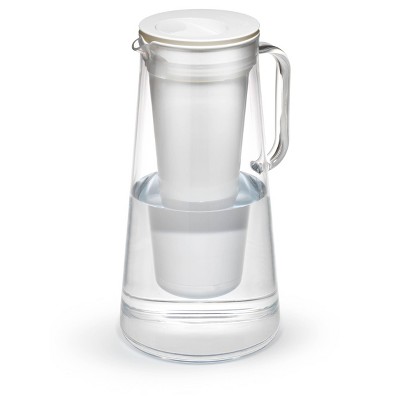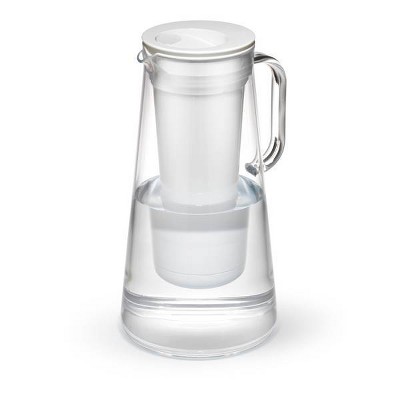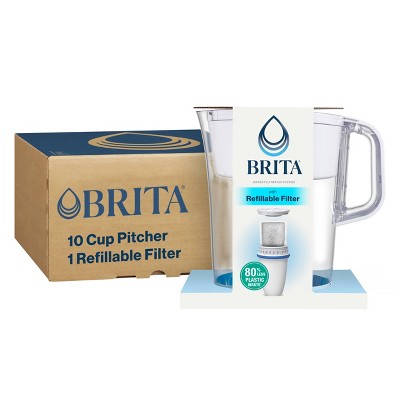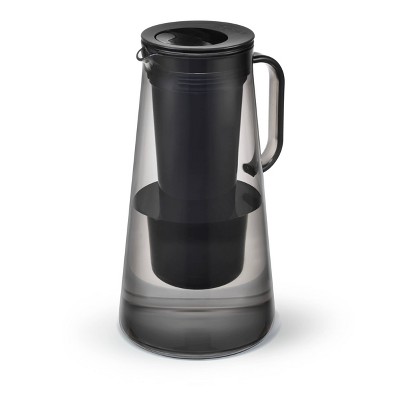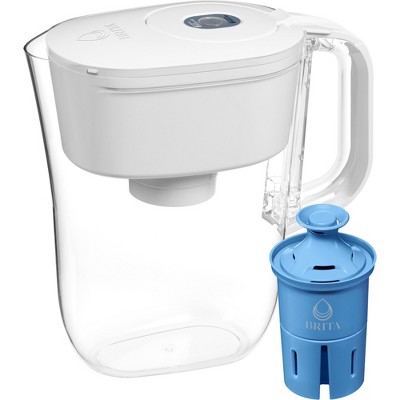About this item
Highlights
- Filtration that actually does stuff. The only water filter pitcher that removes bacteria and parasites, in addition to microplastics.
- Reduces lead, mercury, and chemicals including PFAS (“forever chemicals”), chlorine, herbicides, pesticides, dirt, sand, and cloudiness. Retains essential minerals like magnesium and potassium that are good for your health.
- Sleek and sustainable design, made from hand blown borosilicate glass. Easy to use and maintain.
- Improves taste and avoids the need to buy single-use plastic bottled water
- The LifeStraw Home Water Filter Pitcher comes with your first membrane microfilter and carbon filter included when purchased.
- Your purchase has impact: one product, one child, one year of safe water.
Description
Shipping details
Return details
Q: Do any of the parts including the filter have plastic?
A: Thank you for reaching out. This is a common and important question- especially with increasing concerns about plastics and water safety. Here’s some information to help clarify: Material Safety & Selection Our engineers and R&D teams carefully select materials that balance safety, durability, and longevity. All components that come in contact with water, including our pitcher, dispenser, and housing materials, are made from SMMA, which is BPA-free and chosen specifically because it does not leach harmful chemicals into the water. Over time, we’ve updated materials in response to emerging data and evolving safety standards. Rigorous Testing Standards LifeStraw products undergo testing in accredited laboratories and are further verified by independent, third-party labs. This gives us confidence that the materials used are safe and not leaching harmful substances. In addition, our products meet or exceed the standards set by the U.S. FDA, EU regulations, NSF, and California Prop 65 for materials used in drinking water applications. Plastics & Product Design Using plastic remains a complex challenge. While we are actively exploring sustainable alternatives, some materials—like those used in our membrane filters—currently don’t have viable replacements without compromising function, durability, or user experience. We know this is a concern for many customers, and we’re committed to continuing innovation in this area. Thank you again for your question.
submitted byLifeStraw - 14 days agoBrand expert
Q: How quickly does water filter for the max fill?
A: Hi, Thank you for your question. Here’s what to expect with the microfilter during first use: The flow may start out slow but should improve after the first few batches. Once broken in, the flow rate should be about 85–225 ml per minute (roughly 1/3 to 1 cup per minute). For example, the 7-Cup Pitcher typically takes 7 minutes to filter a batch, while the full 7 cups take about 20–25 minutes. The flow can slow if the water in the top and bottom sections is equal. To help, try refilling the top to maintain pressure. I hope this helps answer your question!
submitted byLifeStraw - 1 month agoBrand expert
Q: What is the maximum temperature the pitcher can handle? Can it safely accept boiling water or hot coffee in the pitcher without it shattering? Thanks.
A: The LifeStraw 7-Cup Glass Pitcher is made from durable borosilicate glass, which is more resistant to thermal shock than regular glass. However, LifeStraw advises against exposing the pitcher to extreme temperatures. Specifically, it should not be used with liquids hotter than 140°F (60°C) or colder than 33°F (1°C) . Pouring boiling water or hot coffee directly into the pitcher could damage the glass or compromise the filter components.
submitted byLifeStraw - 2 months agoBrand expert
Q: Can it be left on the counter? Won't fit in fridge. If it can be left on counter should the filter be changed more often? Does sitting on counter increase the chance of mold or mildew growing?
A: Yes, the LifeStraw 7-Cup Glass Pitcher can absolutely be left on the counter if it doesn’t fit in your fridge. Leaving it at room temperature will not impact the lifespan of the filter, and there’s no need to change the filter more frequently. Just be sure to clean the pitcher regularly (we recommend every few days) to prevent any potential buildup of mold or mildew—especially in warmer or more humid environments.
submitted byLifeStraw - 2 months agoBrand expert
Q: Can it go in the dishwasher? Thanks!
A: That's a great question! The borosilicate glass pitcher is dishwasher safe. However, we recommend hand-washing the silicone gaskets and plastic parts (such as the lid and housing) to preserve their flexibility and integrity. High heat and dishwasher detergents could wear down these materials over time.
submitted byLifeStraw - 3 months agoBrand expert
Q: What material is the filter housing that holds the filter and sits in the water made of?
A: Thanks for reaching out! The filter housing is made from durable, BPA Free plastic.
submitted byLifeStraw - 3 months agoBrand expert
Q: Does it filter fluoride?
A: Hi Jessica, The LifeStraw products are designed to remove contaminants such as bacteria, parasites, microplastics, heavy metals (including lead), PFAS, and more depending upon the specific filter. However, it does not remove fluoride, as our focus is on reducing harmful contaminants while retaining essential minerals. Let us know if we can be of any additional assistance!
submitted byLifeStraw - 4 months agoBrand expert
Q: What are the name/s of the filter/filters and how often must they be replaced?
A: That's a great question! The membrane microfilter lasts 264 gallons (1 year). The activated carbon + ion exchange filter lasts 40 gallons (2 months).
submitted byLifeStraw - 5 months agoBrand expert
Q: How many filters come with the pitcher?
A: That's a great question! The LifeStraw Home Water Filter Pitcher comes with your first membrane microfilter and carbon filter included when purchased.
submitted byLifeStraw - 7 months agoBrand expert
Frequently bought together
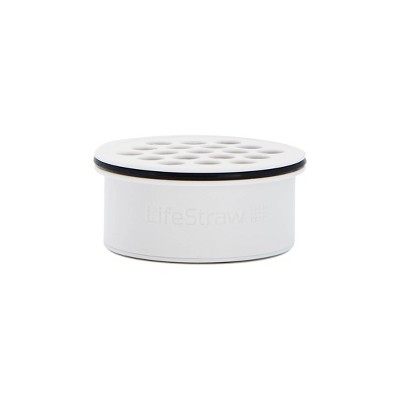
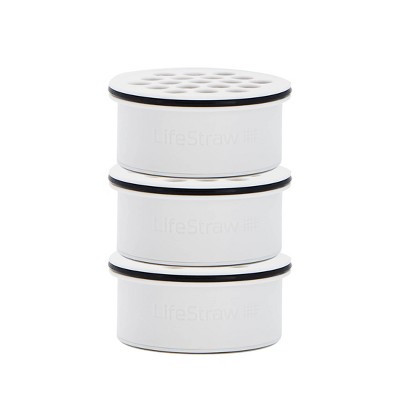
Related Categories
Guests are saying
Pretty but slow
Sooooo slow

Awkward

Love it!

Great taste, good design options.

Great glass pitcher

Wonderful but S. L. O. W.

Wonderful addition

Note from your newest fan

Life straw home cup pitcher

Beautiful design

Doesn’t work very fast.

Like the look and feel

The lid chipped and a

I been using my 7-cup

Game Changer!

Mark Bounds & Family Clean Water

Best tasting water filter
Works well

Home 7-Cup Glass Water Filter Pitcher from LifeStraw





